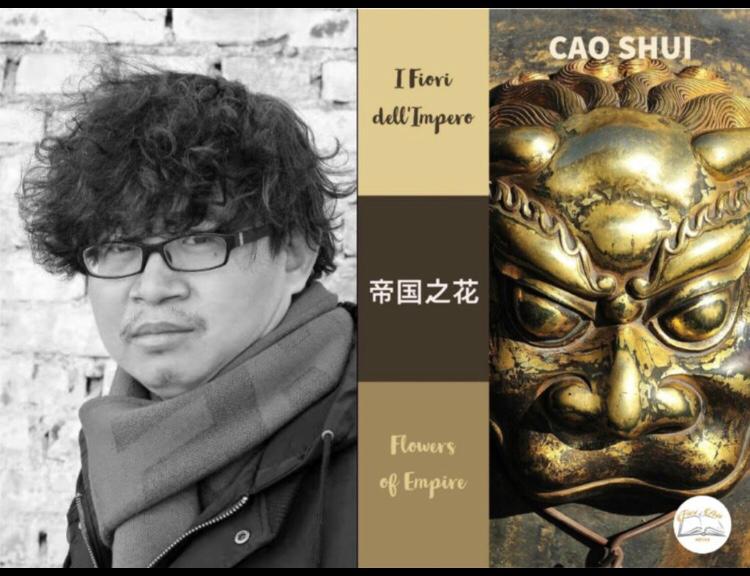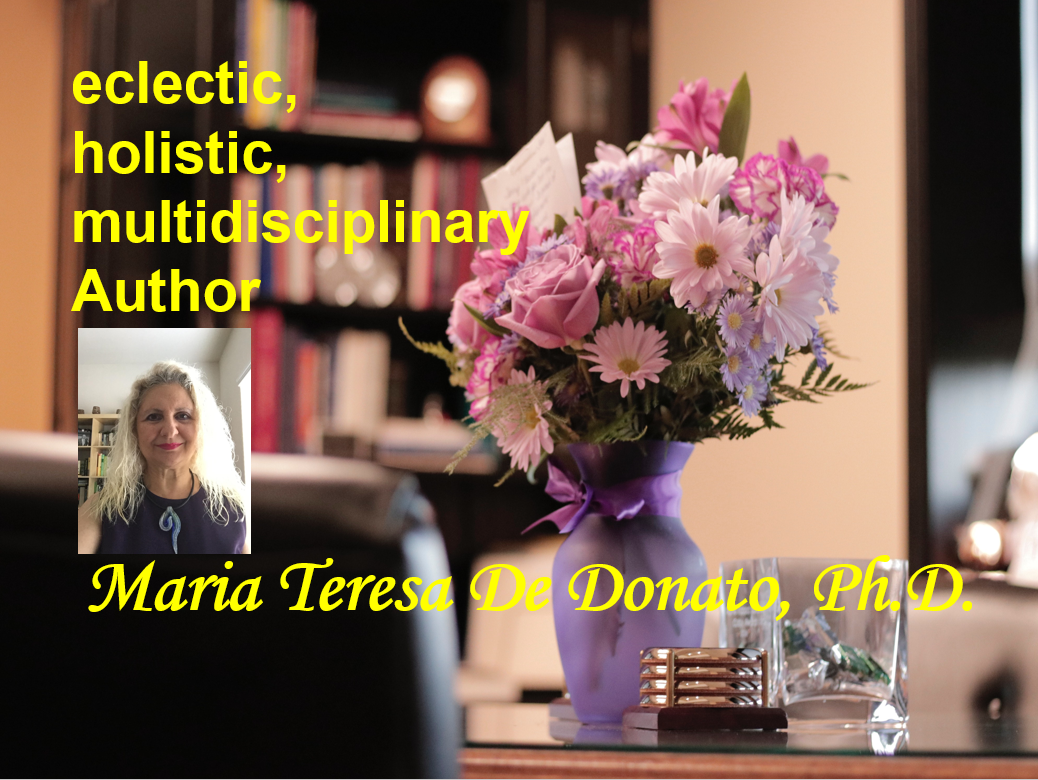Poetry collection in three languages by Fiori D’Asia Publisher
Review by Maria Teresa De Donato
.jpg)
Reading, interpreting, and reviewing The Flowers of the Empire by Cao Shui was not easy but extraordinarily fascinating and equally exciting.
The purpose, not only of this Collection but also of his entire literary production, is clearly indicated in the chapter Rebuilding the Tower of Babel of Literature in which the Author himself states:
“I think if everyone spoke the same language, maybe we could actually reach Heaven. … I hope that, through writing, we can rebuild the Tower of Babel of literature so that everyone can communicate freely. …I devised my Tower of Babel Plan and began to put it into practice in hopes of creating a literary world. (pp. 13, 14) The World Poetry Movement (WPM) promotes the concept of a world without walls.” (p. 16)
A great culture, a profound sensitivity, and an equal capacity for analysis and to see the World at 360º emerge in this literary work as the flagships of Cao Shui’s poetics.
By his own admission, this Collection expresses his (Cao’s) “feelings for the city of Beijing, Beijing, the capital of China. … built around the Forbidden City, [and which] is ever expanding … like a huge flower that blooms and controls the nation.” (p. 17)
In my opinion, however, this work goes much further as its interpretations are various: literal, symbolic, esoteric, and metaphysical.
The message, sometimes hidden, other times direct, is simple: go far away with your mind, overcome linguistic, cultural, and political barriers, and embrace humanity as a whole. We are all in the same boat, human beings of every nationality, ethnicity, culture, political and religious ideal. The only thing that divides us and, at the same time, unites us is living Life consciously or not.
Only Awareness allows us to have an overall, global, objective, and disenchanted view of the Whole. Paradoxically, it is, at the same time, precisely Awareness that makes us suffer when we realize the nonsense that governs this World, of how the true meaning and intrinsic value of Life itself, of an existence worthy of being defined as such, escapes the majority.
Awareness, therefore, leads to the realization that in the face of a lost Humanity and under hypnosis
“the only one who cries in pain is you…
The only one overwhelmed by pain is you…
…the most ordinary person in the World…” (pp. 29, 30) (NOTE: Emphasis added)
The differences that, as human beings, we have created, cause that
“We look at each other from the river, remaining on the two opposite sides.
Through two distinct realities, we observe ourselves,…
We peer at each other from two separate worlds,
and suddenly we feel dizzy.” (p. 93)
…
Dark matter is all around us,
there is a huge black hole between us
…
We are all doing our best
to find a time channel.” (p. 100)
At the same time, hope is the last to die, that is, the one that
“From the sunset of Europe to the dawn of Asia
it’s an eternity;
that will finally unite us. (p. 71)
…
Their descendants
one day they will be a family.” (p. 72)
Among the themes of fundamental importance that emerge from reading this Collection of poems, we also find a condemnation of consumerism or worse, the lack of appreciation for the value of what we have, respect and admiration for Nature, the consequences of ‘disposable’ mentality sadly applied also and above all to human beings.
A beautiful aspect that I found is Cao’s versatility and his consequent ability, through his verses, to unite various cultures – Eastern, Western, ancient, and modern – thanks to his vast literary and historical knowledge which, spanning centuries and Countries, gives Life to a whole that is as harmonious as it is seductive.
Although aware that
“In the vastness of the World,
loving yourself is so hard!”
Cao’s poetics aims, first and foremost, to highlight the gaps that humanity has as a whole and the fast and incessant passing of time and, consequently, of our human existence. However, it also constitutes an invitation – which perhaps some could interpret as ‘utopian’ – to look ‘beyond the curtain,’ grasping the meaning of Life and understanding that, despite appearances, i.e., traditions, religious and political beliefs, and one’s system of beliefs, we all belong to one big family: the human one:
“…on the top I will gather all the people
to teach them to plant in the world
new seeds.” (167)
Therefore, Flowers of Empire is a splendid collection of poems I recommend reading to everyone. It will fascinate readers, involving them emotionally and leading them to careful reflection.
My compliments also go to the publisher, sinologist, and Author, Fiori Picco, for the detailed translation. Fiori, however, should not only be recognized for having carried out a careful work of translation from Chinese, correct from the point of view of the lexicon, but also, above all, for her ability to render these translations into Italian and English equally poetic.


